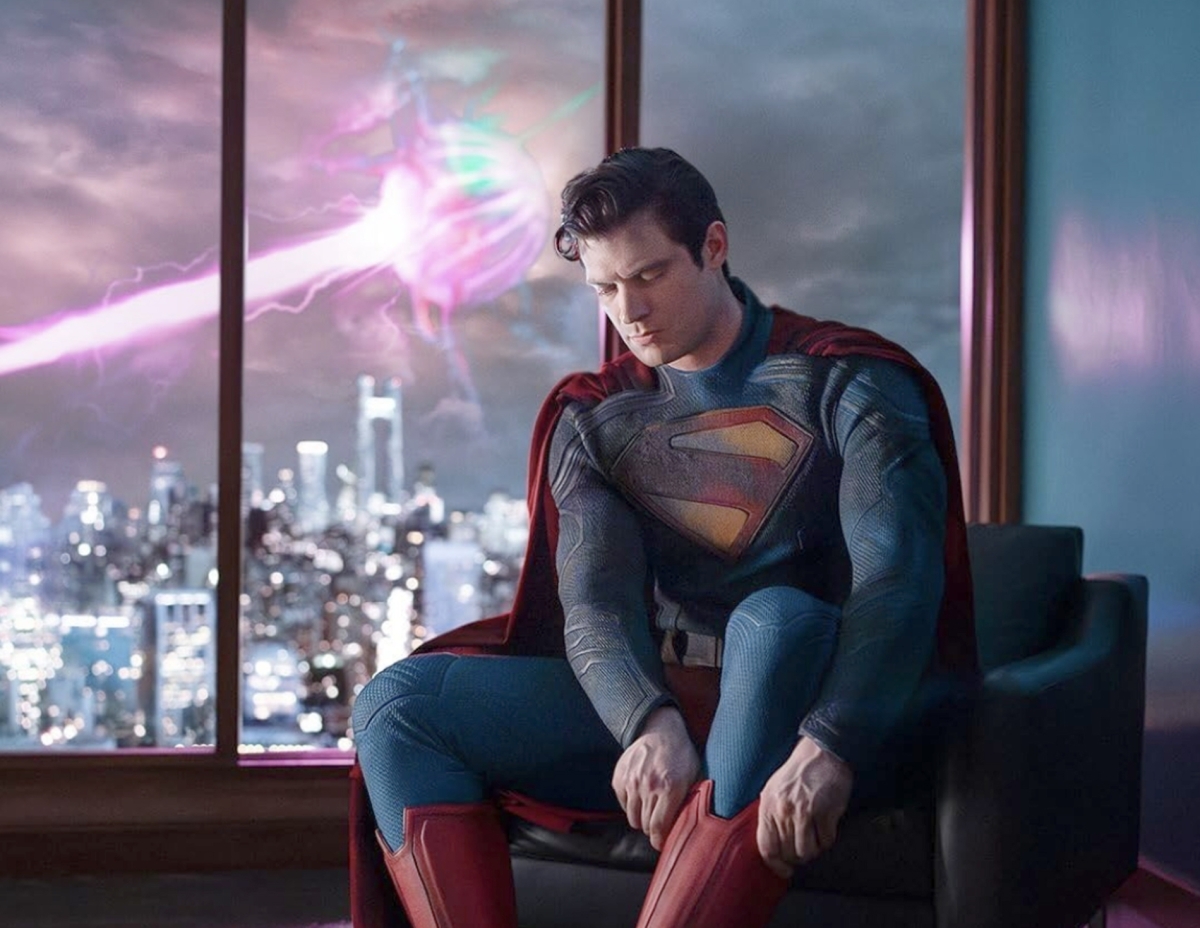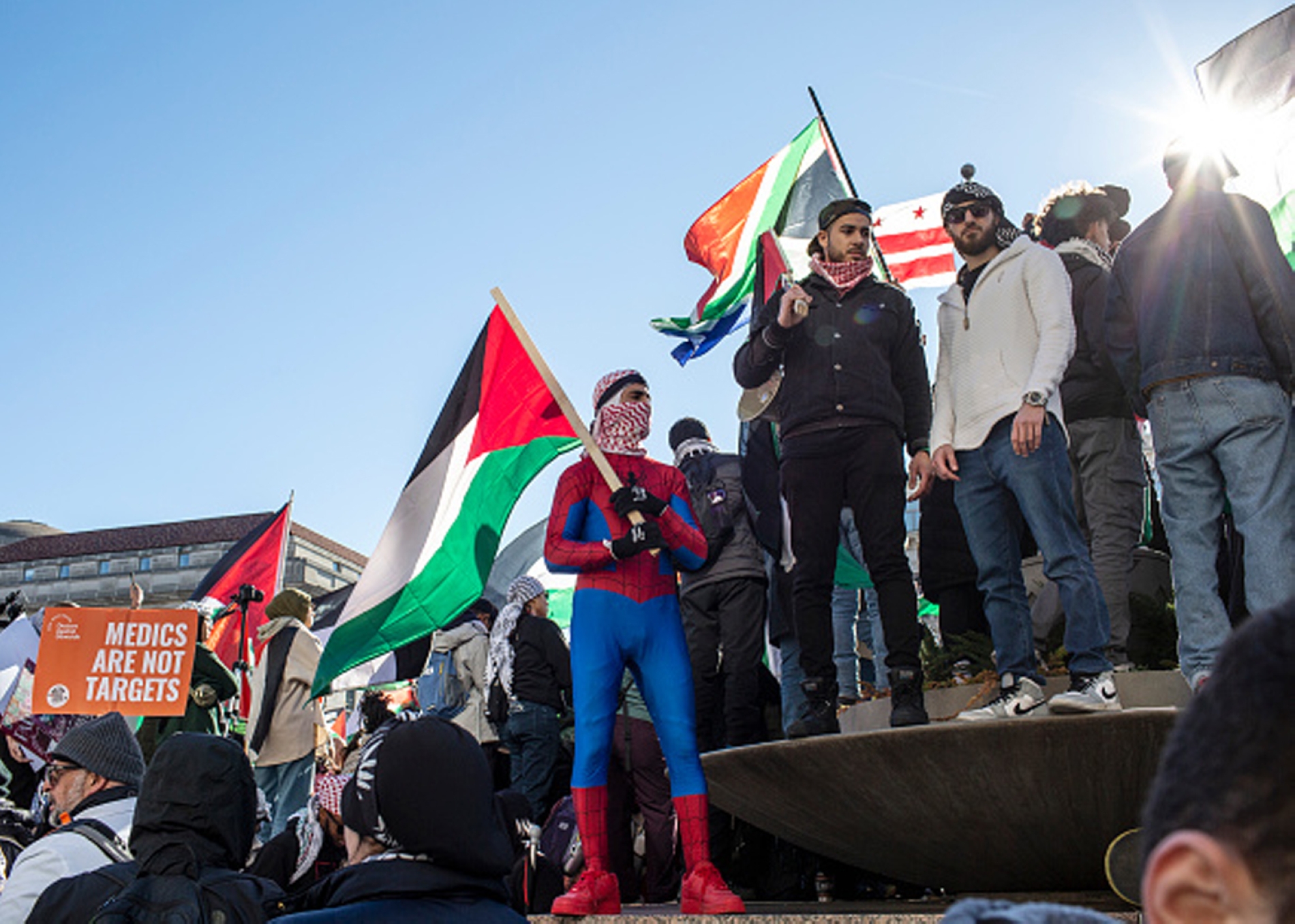When James Gunn rebooted Superman, one of his key innovations was to situate the Man of Steel within a “tribe”—a fellowship of migrants and outsiders. From the outset, Clark Kent is no longer just a mild-mannered superhero in disguise. Almost everyone knows the truth, especially the ‘metahumans’ (those born human but transformed by circumstance). Superman, by contrast, is an alien whose humanity is defined not by blood but by belonging and moral choice.
This shift moves the story away from the tired old duality of secret identity to more fundamental questions of war, occupation, the power and peril of technology, the role of social media in shaping ‘truth,’ the arms industry, the cult of the hero, and, above all, the figure of the alien—the label America gives to its migrants and refugees.
The film imagines a fictional state, Boravia, ruled by the power-mad Vassil Gorkos. He conspires with Superman’s classic foe, Lex Luthor, a tech tycoon who dreams of a crown. Their plan is to invade Boravia’s poorer neighbour, Jahrenbor, seize its land and wealth, and establish a new kingdom.
Superman prevents the invasion, enraging Washington, which must now ask: is Superman truly American? By thwarting Boravia, an American ally, did he betray his nation’s interests? Lois Lane poses this question directly in an exclusive interview. Superman’s answer is simple: “I stopped people from being killed.” It is not a political answer, but an answer against politics. That is precisely why it threatens to strip him of his legitimacy, even his Americanness.
Later, in a telling exchange with Luthor, Superman insists that he is human, not a machine or alien, because he feels what ordinary people feel—fear, joy, the daily struggle to endure. “That,” he declares, “is my strength.” In this, Gunn’s Superman surpasses Trump’s nationalism and American institutional patriotism. Being human, he suggests, transcends the boundaries of citizenship.
Superman’s kinship with the immigrant is underscored when he elevates a falafel vendor, Malik Ali, to the status of “martyr” after Lex Luthor (and the establishment behind him) kills the man for standing by Superman in his darkest hour.
Eerie similarities
Unsurprisingly, from the moment the film premiered, pro-Israel voices denounced its narrative, while pro-Palestinian audiences embraced it. Gunn said he wrote it long before 7 October 2023, but the similarities were eerie. Boravia is unmistakably Israel; Gorkos is Netanyahu. Jahrenbor is Gaza: a leaderless, impoverished people clinging to their land, resisting annihilation.
Boravia’s strength comes from its alliance with the United States, recalling America’s long history of support for military dictatorships. It also comes from Luthor’s bargain: weapons worth $80bn in exchange for half of Jahrenbor’s land.
The irony is that Israel’s backers were the first to cry foul. But in their rush to deny the resemblance, they only confirmed it. Boravia is America’s ally, armed to the teeth, led by a tyrant, colonising land under false pretences, ready to slaughter civilians in the process. If Israel’s supporters saw themselves in this mirror so quickly, perhaps it is because the reflection was accurate.
One commentator fumed: "Superman is Jewish, his creator is Jewish, his back story is based on Moses. How dare James Gunn use him to demonise Israel?" Such protests only amplified the narrative, placing Israel squarely at the heart of the indictment.
















